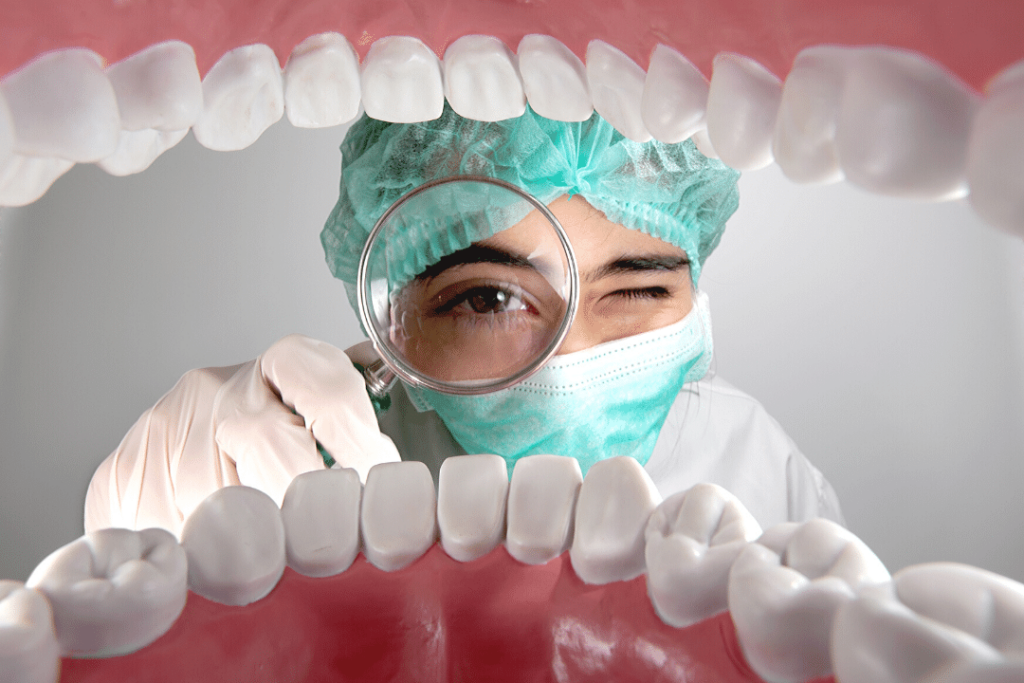The role of teeth brushing in cancer care is of utmost importance: good oral hygiene can reduce the risk of some cancers, and some cancer treatments can cause painful problems with the mouth and gums.
The importance of brushing our teeth regularly and effectively is drilled into us from early childhood. Good dental hygiene means we can avoid gum disease, tooth decay, and expensive – and extensive – dental treatment. Fresh breath and a bright smile helps make us feel ready to face the world. But there are even more serious problems we can avoid just by adopting good habits such as brushing, flossing, and regular check-ups. Some cancers, respiratory and heart diseases are closely linked to poor oral care.
The Budwig Center is a holistic healthcare provider, and our team knows that a deep understanding of how every part of the body can affect every other is an essential component in a complete approach to health and wellness.
A Healthy Mouth, A Healthy You
The digestive tract has a significant impact on our immune system. However, we must also be aware that the mouth is the beginning of our digestive tract. If we have the habit of only breathing through our mouths, we are not getting proper oxygenation. The air we breathe in isn’t as pure as when we breathe through our noses, and additionally, we are drying out the saliva. If our mouth gets dry, saliva becomes unbalanced and acidic. Acidic saliva is an invitation for pathogens to make themselves at home in our gums, on our teeth, and even in our bones. Acidic saliva can also cause an unbalance in the gut.
Other aspects in our mouth that cause acidity are amalgam fillings or nickel pieces placed in our mouth. Healthy teeth, roots, and gums should be a priority for any patient who has a chronic illness. We urge patients who come to our clinic to check the health of their teeth, gums, saliva before coming as soon as they enroll in one of our programs.
The Effects of Cancer on the Mouth
Cancers affecting the mouth mean the presence of cancerous cells, lesions, and tumors. These cause pain and can mean open sores and increased infection risk. Other types of cancer in other parts of the body, even without obvious spread (metastases), can cause the body to be generally run down, fatigued and prone to ulcers and inflammation. The mouth is sensitive and is often the first place to show signs of being illness – mouth ulcers are associated with just being run down, whether due to serious illness or just being tired and overworked.
Cancer treatments too, especially chemotherapy and locally-directed radiotherapy, are known to cause damage throughout the digestive system, starting with ulcers and cold sores to the mouth and lips. The suppression of the immune system associated with treatments for cancer and autoimmune disease leaves people prone to infections, which then heal slowly for people whose natural defenses are at their lowest. Natural remedies are extremely effective for the ulcers associated with cancer treatment, and honey treatments are now routinely used in conventional medicine as well as naturopathic treatment.
Improving Oral Hygiene For Better Overall Health
The Budwig Center recommends a natural approach to teeth brushing and oral hygiene, and this starts with the water used in mouthcare – the quality of tap water varies by region, and so do the additives used: many countries add fluoride to water, with a view to maintaining healthy teeth, but in fact, fluoride is associated with kidney disease and other negative effects on the health. Chlorine is also added to water to ‘clean’ it, but is very toxic in higher doses – the Budwig Center recommends that purified water with no cleaning agents or additives is best for overall health.
The toothpaste used is equally important, and many are filled with bulking agents, artificial sweeteners, and fluoride. The often-overlooked practice of effective flossing is also essential for really good toothcare. Finally, regular check-ups with a holistic, professional dental center mean a total assessment and expert advice.
Staying well starts with a fresh mouth, evidence of all-round good health.
Further reading:
https://www.cancer.net/cancer-types/oral-and-oropharyngeal-cancer/risk-factors-and-prevention
https://www.thehealthsite.com/oral-health/how-poor-dental-hygiene-can-lead-to-oral-cancer-219717/
https://www.rdhmag.com/patient-care/rinses-pastes/article/16407824/patients-with-cancer
https://www.greenfacts.org/en/fluoride/fluorides-3/07-risks.htm
https://www.waterpik.com/oral-health/blog/why-use-a-waterpik-water-flosser/
